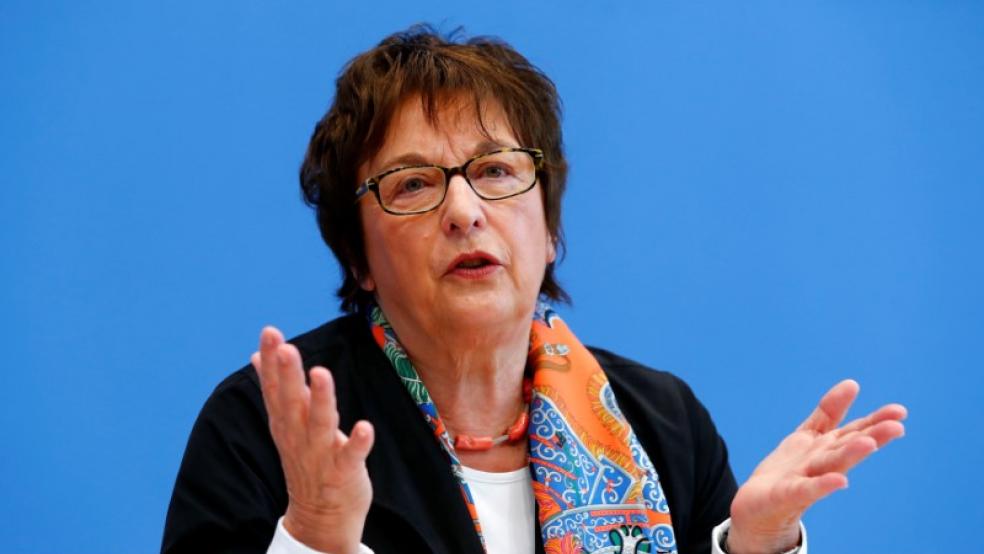BERLIN (Reuters) - Higher consumption and construction propelled German growth to its strongest quarterly rate in two years at the start of 2016, data showed on Tuesday, but risks including weaker trade and a potential British exit from the EU are seen slowing its pace.
The European Central Bank's ultra-low interest rates and the German government's increased spending on migrants were among factors singled out by analysts to explain GDP growth of 0.7 percent in Europe's largest economy in the first quarter."The calculation of consumers is pretty simple: If there are no interest rates on the bank account, then let's just fill the shopping bag," VP Bank economist Thomas Gitzel said, adding that companies also increased investment in the first quarter.A survey by think tank ZEW showed the mood among analysts and investors worsened unexpectedly in May, however, with its economic sentiment index falling to 6.4 points. A separate gauge of current conditions rose to 53.1 points."Uncertainties such as a possible Brexit do not allow a more optimistic outlook," ZEW president Achim Wambach said, adding investors had doubts that the economy would continue to grow at the same pace after the surprisingly strong first quarter.Britons will vote in June 23 referendum on whether to stay in the EU.Confirming its preliminary reading, the Statistics Office said consumer spending and construction investment contributed 0.2 percentage points each to GDP in the January-March period.State spending -- including the costs of accommodating and integrating last year's record influx of the more than 1 million migrants -- and company investment in equipment and plants each contributed 0.1 percentage points to growth.A purchasing managers survey showed on Monday that the private sector accelerated in May to its highest level this year, suggesting the economy will extend its surprisingly strong start into the second quarter."TURBO START"Germany's DIHK Chambers of Industry and Commerce raised its 2016 growth forecast for the German economy to 1.5 percent from a previous estimate of 1.3 percent."Construction and consumption will drive this year's economic upswing," DIHK's managing director, Martin Wansleben, said, adding that low oil prices, cheap borrowing costs and increased state spending on migrants were positive factors.On the downside, he said that Germany was getting little impetus from foreign demand. "After the turbo start, the economy will grow at a slower pace in coming months," he said.BayernLB economist Stefan Kipar said public spending on migrants was having a broad effect on domestic demand."The higher state spending on refugees is lifting private consumption through payment of social benefits," he said. "And it's also giving the construction sector an additional push because more refugee shelters are being built."The government plans to spend 9.7 billion euros ($10.8 billion) on supporting and integrating refugees this year, in addition to 6.3 billion euros on combating the causes of migration from the Middle East and elsewhere.The total sum of 16 billion euros is expected to rise in coming years, with Berlin planning to spend 93.6 billion euros overall by 2020 while keeping a balanced budget.On top of this come several billion euros of spending on migrants by the federal states and municipalities.Germany's strong domestic demand more than compensated for sluggish export growth as an economic slowdown in emerging markets such as China clouds the outlook.Net foreign trade was a drag of 0.1 points as exports rose at a weaker pace than imports in the first quarter, data showed. Due to this trend, the government and the central bank both expect Germany's economic upswing to continue at a slower pace.For 2016 as a whole, Berlin predicts a GDP growth rate of 1.7 percent, on a par with last year. (Reporting by Michael Nienaber; Additional reporting by Klaus Lauer; Editing by Madeline Chambers and Robin Pomeroy)Consumers and construction drive German growth, Brexit clouds outlook

FABRIZIO BENSCH



